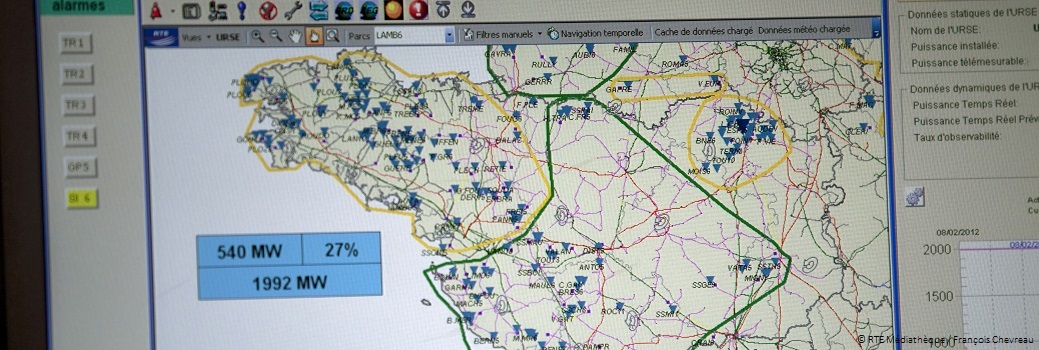Underpinned by the political will to reduce greenhouse gas emissions, renewable energies are developing at a strong and steady pace. By 2030, they should account for at least 45% of total European electricity production. In order to support their development, new scientific approaches are required to represent and analyse their impact on power grid operations.
Ensuring electricity supply
The integration of new sources of renewable energy brings major changes to power grid operations. As such means of production are often low-yield, high in number and widely dispersed, they tend to increase risk and uncertainty. Ensuring electricity supply whilst bringing on line these new means of production is a major challenge. Their impact has to be factored into power grid modelling – an essential tool to analyse their reliability and improve their management.
Facing technical challenges
The technical challenge for the RTE-Centrale Nantes Chair lies in modelling renewable energy sources on a macroscopic scale, i.e. in a manner consistent with the analysis of a large-scale system, such as in Europe, whilst assimilating the real impact generated by their presence in the grid. The objective is to solve the numerous technical difficulties raised through the modelling: choice of aggregation or reduction method, random nature of renewable production (wind and solar power), charging requirements for electric vehicles, protection of the physical grid structure, consideration of different phenomena (different types of oscillation, rapid transient phenomena etc).
Pooling skills
The RTE-Centrale Nantes Chair applies an innovative approach to undertake its research work by calling on skills in automatic control and stochastic modelling. The chair is building strong synergies with two Nantes-based research institutes – IRCCyN[1] and GeM[2]. IRCCyN has expertise in the system aspects of reduction (energy, controllability/observability). GeM is internationally recognised in the field of large-scale model reduction and stochastic modelling
Marine renewable energies: a priority
The RTE-Centrale Nantes Chair is particularly attentive to marine renewable energies (offshore wind turbines, marine current turbines, wave energy, ocean thermal energy etc.) The stakes are high for Centrale Nantes and RTE with regard to these energies, especially in the Pays de la Loire region. The region is leading the way in developing this scientific and industrial field. In 2013, it created a research-training-innovation cluster as well as an offshore test site (SEM-REV http://www.semrev.fr/en/) . The RTE-Centrale Nantes Chair is an active participant in this proactive approach.
[1] IRCCyN Institut de Recherche en Communications et Cybernétique de Nantes -Communication and Cybernetics Research Institute of Nantes
[2] GeM Institut de Recherche en Génie Civil et Mécanique – Research Institute of Civil Engineering and Mechanics

